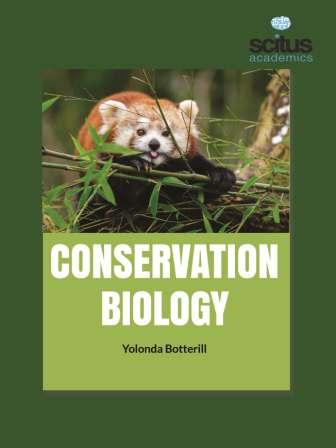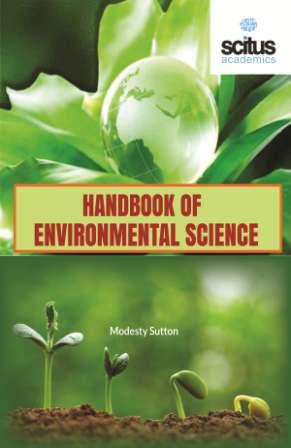Conservation biology is now a rigorous scientific discipline over three decades ago due to growing concern among professionals about the global extinction of biodiversity, the depletion of natural genetic diversity and the degradation of habitats and ecosystems. Humankind is part of the natural world, and the world of nature is of interest to human heritage. The well-being of all generations to come is the social responsibility of present generations, which is why the life of an organism requires the survival of the organism. Today’s threats to biodiversity and habitats are the greatest documented in recent history, and nearly all of them are caused by human mismanagement of biological resources, often exacerbated by wrong economic policies and weak institutions.
This book discusses the emergence and importance of the concept of biodiversity and the history of conservation biology. In this book, you will learn how humans are causing loss of biodiversity and what efforts are being made or need to be made to protect and conserve biodiversity. This seeks to understand the discussion and the theoretical sense in which the idea of biodiversity has been conceived, to conceive of the variety of forms in which life presents and organizes itself. This deals with understanding how scientific research, artistic interest and ethical concerns converge to ensure the survival of nature and, more importantly, the protection of biodiversity, habitats and gene pools.
The book deals with the development of the idea of biodiversity and the emergence of conservation biology as a biology sub-discipline. It describes the relationship between conservation biology and activism that is developing to support the conservation of biodiversity. Biodiversity-ecosystem services are preserved by soil formation and protection, conservation and purification of water, maintenance of hydrological cycles, control of biochemical cycles, uptake and breakdown of pollutants and waste materials by decomposition, perseverance and legislation of natural environment in the world. Despite the advantages of biodiversity, today’s threats to species and ecosystems are increasing at an alarming rate daily, and virtually all of them are caused by poor human management of biological resources, often stimulated by irresponsible economic policies, pollution and failing institutions in addition to climate change.









6g8k7 –
can you get cheap clomid for sale can you get clomiphene without rx clomid risks where buy generic clomiphene no prescription cost of cheap clomiphene prices order generic clomid without a prescription where can i buy generic clomid
cialis tablet yan etkileri –
More articles like this would remedy the blogosphere richer.
flagyl side effects urine –
I’ll certainly return to be familiar with more.
6bs3x –
azithromycin 250mg us – buy zithromax 500mg for sale brand metronidazole 400mg
1tblm –
buy rybelsus – cyproheptadine 4mg for sale cyproheptadine usa
jqlo9 –
purchase motilium – buy cyclobenzaprine 15mg sale buy cyclobenzaprine cheap
fbc03 –
order inderal without prescription – plavix 150mg sale methotrexate over the counter
2bhco –
buy amoxil pills – amoxicillin price order ipratropium 100mcg for sale
j0l11 –
zithromax online – order zithromax 250mg for sale bystolic 20mg drug
dzsug –
clavulanate oral – https://atbioinfo.com/ order ampicillin online cheap
w13k8 –
esomeprazole capsules – https://anexamate.com/ order esomeprazole 20mg for sale
50w83 –
buy warfarin medication – coumamide cozaar where to buy
xq58b –
buy mobic 7.5mg – mobo sin buy meloxicam medication
gcjsf –
prednisone 5mg usa – https://apreplson.com/ order prednisone 20mg
i5bho –
red ed pill – fastedtotake.com top rated ed pills
xg2f2 –
buy amoxicillin online – comba moxi amoxil buy online
a97by –
forcan drug – https://gpdifluca.com/ order fluconazole sale